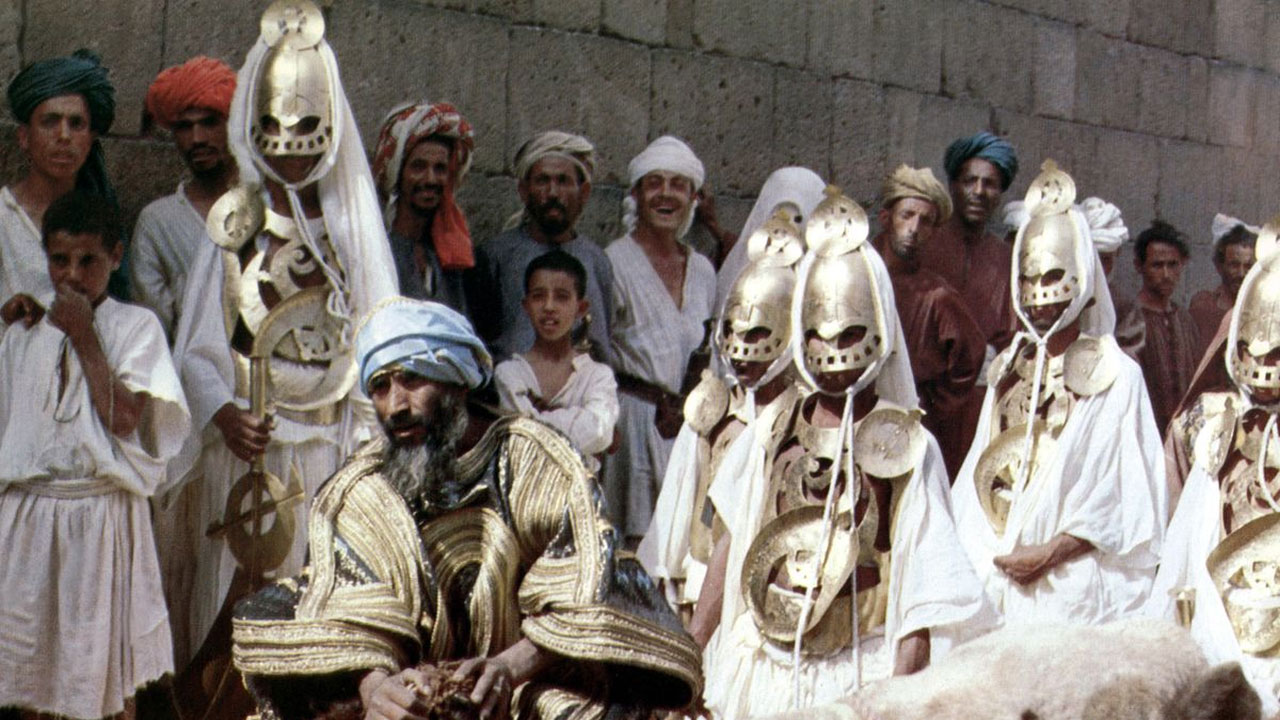
} This section is dedicated to a previous edition of the festival. To get information about the latest edition, please follow this link: HOME

Arabian Nights
(Il fiore delle Mille e una notte)
Pier Paolo Pasolini
- 1974
- Italia, France
- Erotic fantasy
- 2h35mn
- Original version with French subtitles
- Color
Pasolini’s personal take on the famous tales with their magic spells and erotic love trysts, keeping their trundle structure, and the adventures of Noureddine searching for his love Zoumourroud.
There’s nothing more upsetting than the souvenir: one yearling before his last film, the firebrand that was Salo, Pasolini offered with this last part of a trilogy, the most luminous of his works, a sublime ode to carnal pleasures where the young body is an altar. Never forsaking himself, the director breathes a novel enchantment into A Thousand and One Nights that owes as much to the genius of fairy tales as to the marvels of sexual innocence’s rediscovery.
Screenings
08/09 • 20h30 • Screen 100
Credits
- With : Ninetto Davoli, Franco Citti, Tessa Bouché, Margaret Clementi
- Screenplay : Pier Paolo Pasolini, Dacia Maraini
- Photography : Giuseppe Ruzzolini
- Editing : Nino Baragli, Tatiana Casini Morigi
- Music by : Ennio Morricone
- Production : Alberto Grimaldi
















Kirill Serebrennikov